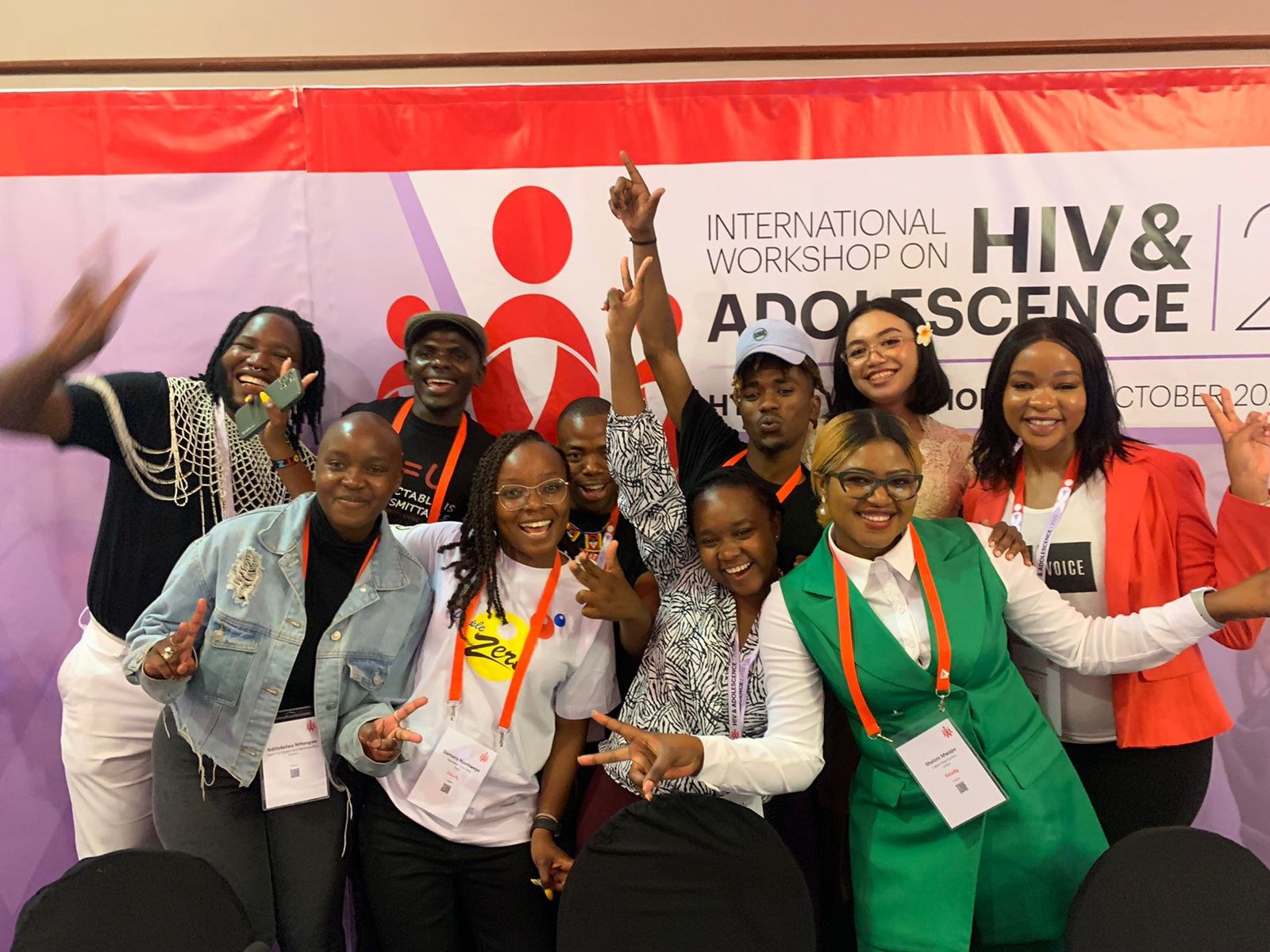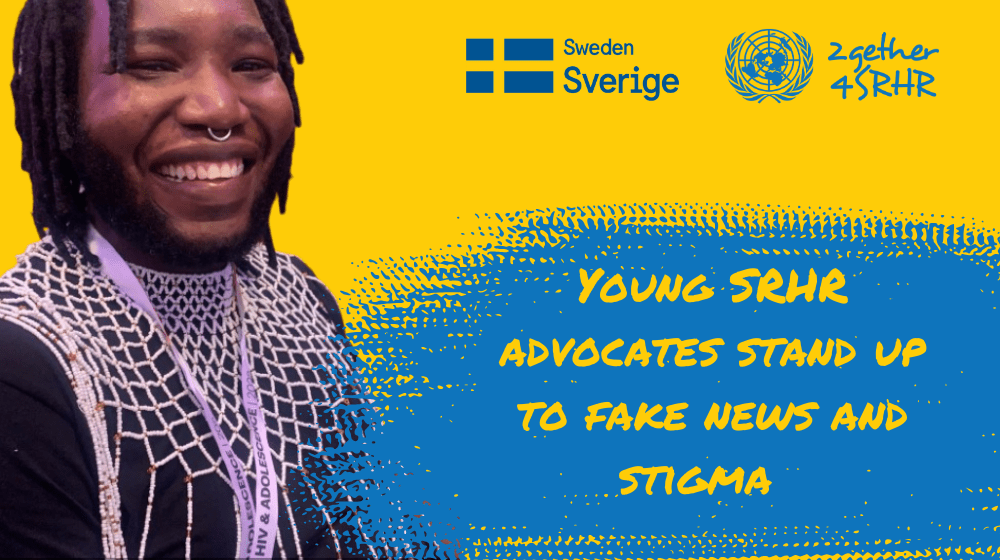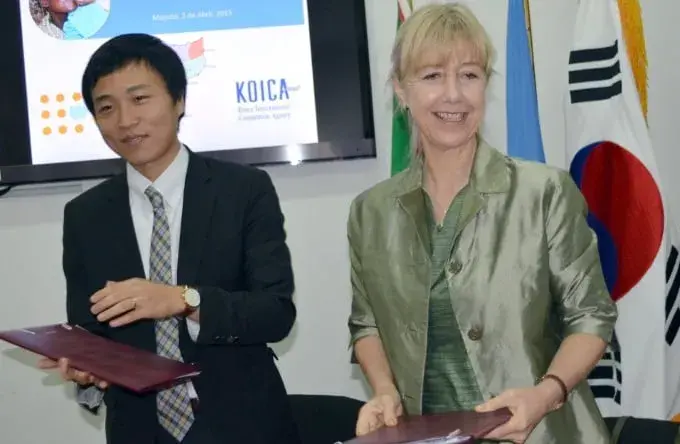|
The majority of young people living with HIV, 60 per cent of the global total, are in Eastern and Southern Africa and only 70 per cent in 12 countries in the region have access to lifesaving antiretroviral treatment (ART). AIDS is still the leading cause of adolescent deaths with young people facing many challenges, which reduce their likelihood of accessing HIV services or continuing ART treatment consistently. Ruele, 26, is a young Kenyan advocate working with Y+ Kenya - a global network of young people living with HIV supported by the 2gether 4 SRHR programme. His life’s work focuses on addressing the stigma on how young men feel ashamed of taking antiretroviral treatment (ART). Ruele takes his ART in public to help normalise the idea of taking this medication and uses social media to reach young people. After unexpectedly testing positive in 2020 he was devastated and reduced to tears but he managed to get onto treatment and started taking his medication two days later. At the time of diagnosis he was homeless and unemployed and knew that his immunity was compromised. After mustering the courage to tell his partner about the outcome of his HIV he hoped that his partner would be a source of support – but instead, he left – and this left Ruele further hurt and isolated. “I had no role models or anyone to look up to. With friends we don’t discuss much, it’s just fun. I was going through stages of grief. I was angry at everyone and everything – blaming myself for being ignorant. I had access to facilities that provided information about sexual health. And I ignored it all. I started lashing out at my best friend, wishing he would have it too, to be with me. That’s when I realised these thoughts were not ok, I had work to do” he recalls. At some point a few months later, one of his friends shared a link to a peer educator training supported by 2gether 4 SRHR programme. He applied and got a job as a peer educator soon after. This helped him rent a studio apartment. He reached out to his parents who he hadn’t spoken to for three years since coming out as gay. His mum was responsive and he started going home for visits. She noticed him taking PrEP and that was followed by him receiving calls from relatives asking if he had AIDS. “I told them I have HIV, not AIDS. I figured, if this was my life anyway, perhaps I could educate people on it. That's when I started talking openly on Twitter and learning about other people’s challenges of getting medication. I came across Doreen, who was openly talking about HIV and she invited me to speak at this regional meeting sponsored by 2gether 4 SRHR and Y+. We are all speaking up on the issues that affect us, how we can change legislation, inform planning of quality services, to improve access, change attitudes and reduce stigma.” adds Ruele. 
In an effort to reduce stigma on TikTok and counter the sad depressing content he saw there on HIV, he decided to take his antiretrovirals publicly. He went to a public parking space and recorded a video of himself taking his antiretrovirals and it went viral with more than 40,000 views in less than a day.He repeated the same video recording at a church, a police station and even a supermarket, which got on national news. “ At that point I also decided to start a podcast: Sex Ed by Ruele-ations. My friends appreciated my being brave, but I just wanted to let out the pain. My therapist warned me that once it’s out, it’s out. I ignored this advice. I could feel people staring, talking under their breath. I got scared because my status and identity are not accepted in the society I live in.” he explains A month after launching his podcast Ruele got a message from someone in Philippines, letting him know that his podcast gave them hope and saved them from committing suicide. To date his podcast has reached thousands of people in 40 countries and this has given his strength to continue. However not all the responses have been positive on social media. There have been hateful comments where people go as far as to say that he deserves HIV because he identifies as a gay man. He realized that he began to not only anticipate stigma but also started stigmatizing himself. Gradually with help from peers he started to see himself as a champion who could give information about HIV and help people through it. He is now the director of a shelter for homeless and runway queer youth in Kenya. Ruele travelled to Zambia to share strategies with 200 young people at the HIV & Adolescents workshop in Lusaka, attended by the First Lady of Zambia. Ruele is part of the UNITED! Movement of young leaders advocating on key sexual reproductive health rights and HIV issues, calling for young people to have leadership roles in decision-making spaces which affect their lives. Laurie Gulaid, UNICEF’s Regional HIV advisor, said: “2gether 4 SRHR is a Joint UN Programme in partnership with the Government of Sweden. Sexual Reproductive Health Rights (SRHR) are crucial to our achieving the Sustainable Development Goals, so we are working together with our sister UN agencies to deliver as one on this agenda which is critical for young people." 2gether 4 SRHR, in partnership with Sida, aims to ensure universal access to sexual and reproductive health rights across Eastern and Southern Africa.
|
Sexual & reproductive health
Human rights & gender equality
Population matters
Who we are
News
Young SRHR advocates stand up to fake news and stigma
17 October 2023

Related Content
Remote video URL
Remote video URL


